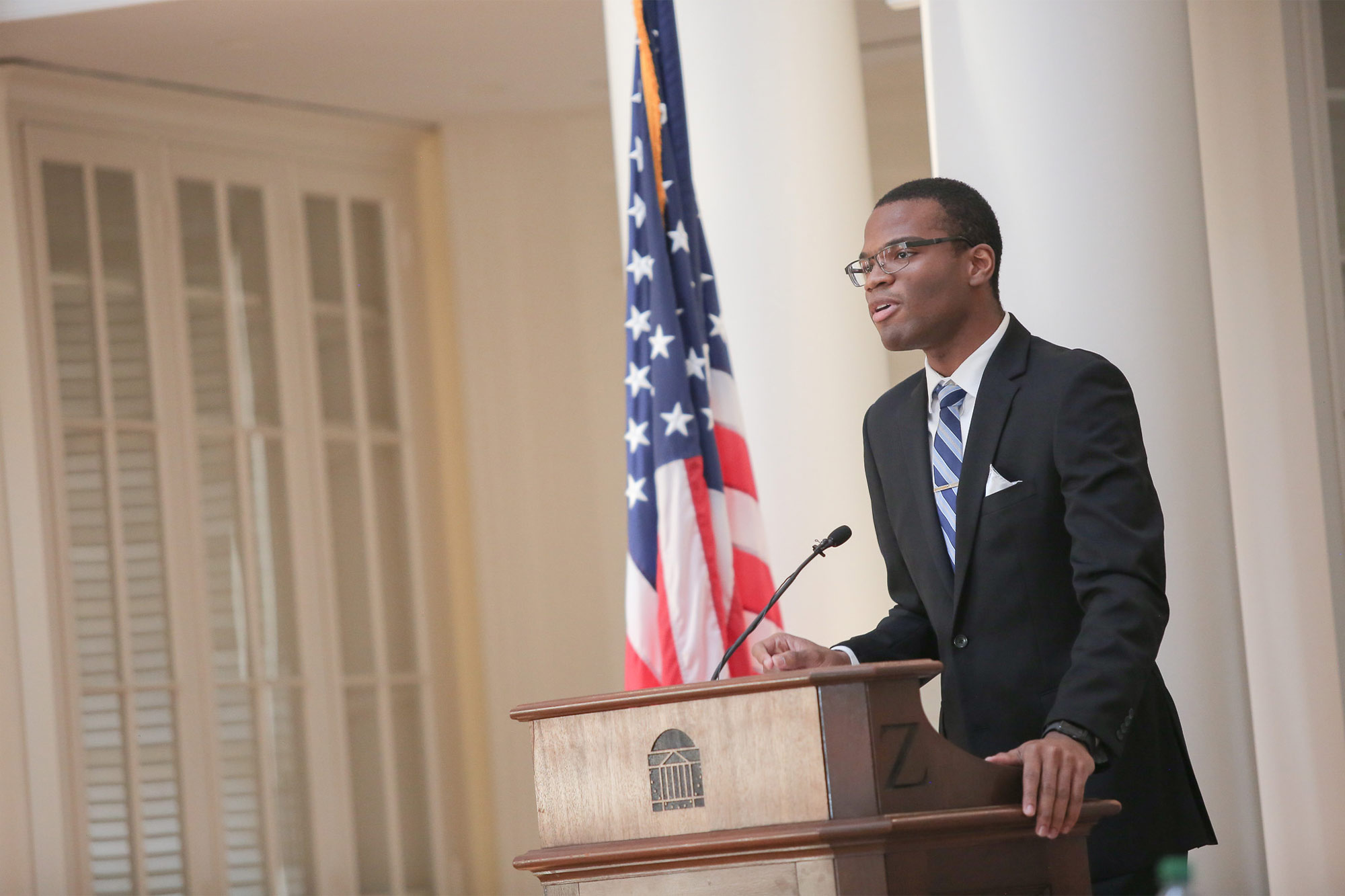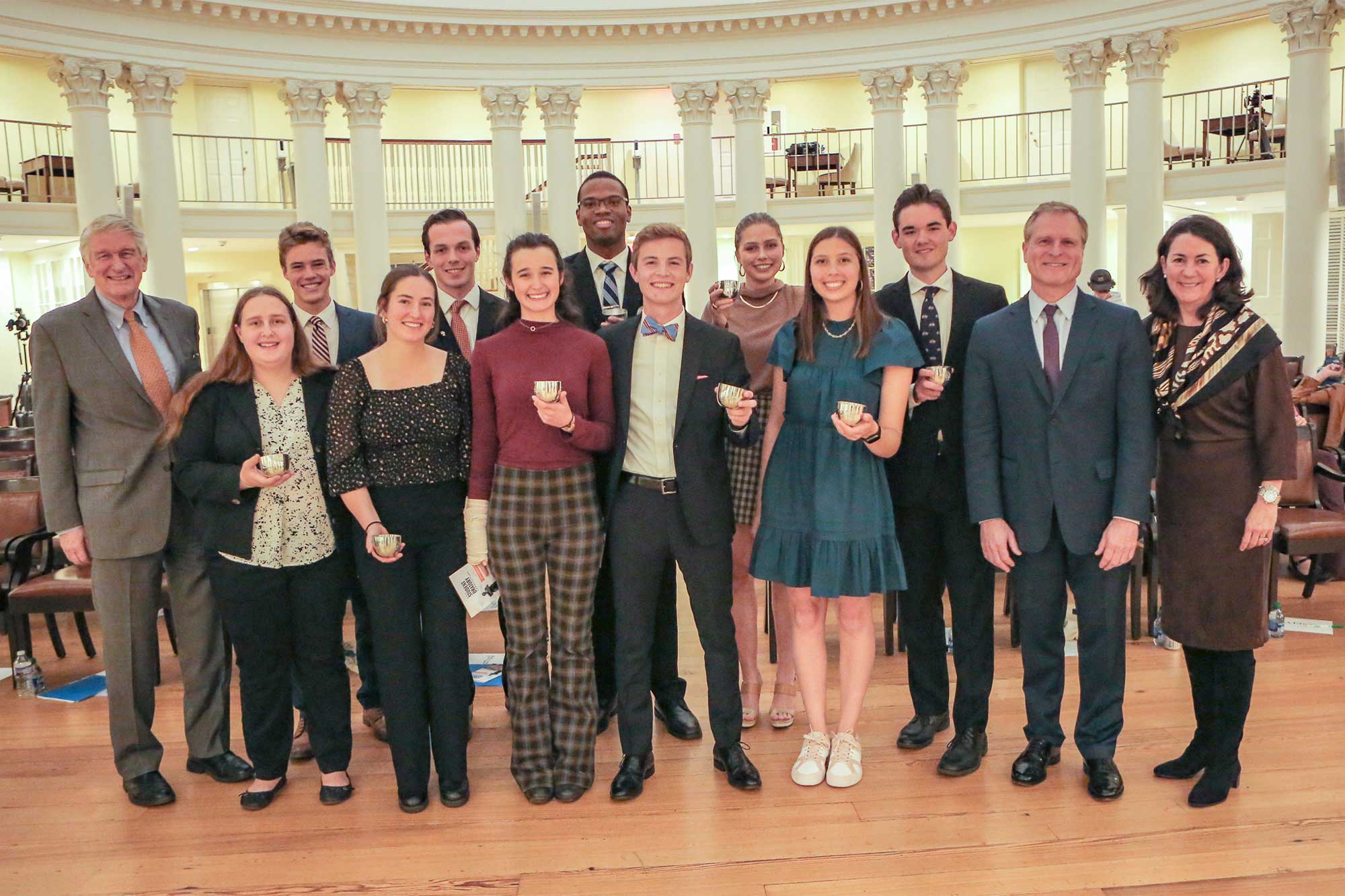Below is the full transcript of Cooper’s speech, titled “A Remedy to Save America.”
“In these difficult years, America has suffered from a fever of words; from inflated rhetoric that promises more than it can deliver; from angry rhetoric that fans discontents into hatreds; from bombastic rhetoric that postures instead of persuading.”
When were these words spoken? If you guessed today, you would be mistaken. This quote comes from United States President Richard Nixon’s inaugural address delivered on Jan. 20, 1969. At that moment, the country was recovering from the chaos of 1968, the war in Vietnam was continuing to lose American lives, and the national mood was one of hostile partisanship; much like today. The past two decades of this century have seen an increase in political strife. The experiment of the United States has been tested increasingly by the words of its citizens. We as a nation seem to have collectively forgotten something that is key to a healthy democracy: free speech.
“Free speech” is a term that gets tossed around like a Frisbee quite often today. As political divisions harden, we as a country cannot even agree on what constitutes free speech. Our federal union is comprised of 50 states; laboratories of democracy. Within these laboratories are its public universities; the greenhouses for tomorrow’s leaders. Yet, across campuses, there is a disturbing trend of censorship occurring. Colleges, fearful of inflaming the ills that have plagued our society, have declined to allow all voices a seat at the table of learning. I feel the result has been and will continue to be disastrous for every student, and it may do a grave disservice to higher education.
Ideas matter. Words matter. How we express ourselves as a people is a sign to the world. The question is whether or not we will show strength or weakness. My concern is that a restriction of the First Amendment will convey weakness. Universities have long been places for youth to gain exposure to ideas that they may have never encountered. Some students exit having undergone a political or ideological awakening; others leave indifferent. The tie that binds them is that they graduated having heard all sides.
From the towering pine trees of Maine to the majestic hills of California, the United States is a diverse group in thought. As a young person, I have come to university to learn how to help my fellow citizens, and I have met dozens of classmates who share the same dreams. Yet, how can we help our countrymen if we do not consider how they feel? Any censorship of speech harms the ability of people to understand. We cannot help others unless we acknowledge their motivations. Unfortunately, there are those who believe the feelings of some have no place on a college campus.
Those in favor of a form of university censorship say it is to prevent giving a platform to “dangerous ideas” that have no place in higher education. However, what constitutes a “dangerous idea” is relative. In some instances, such an idea is simply one unpopular with the majority. When the majority uses its power in a way to prevent the opposition from sharing, everyone loses; a perspective is not gained.






